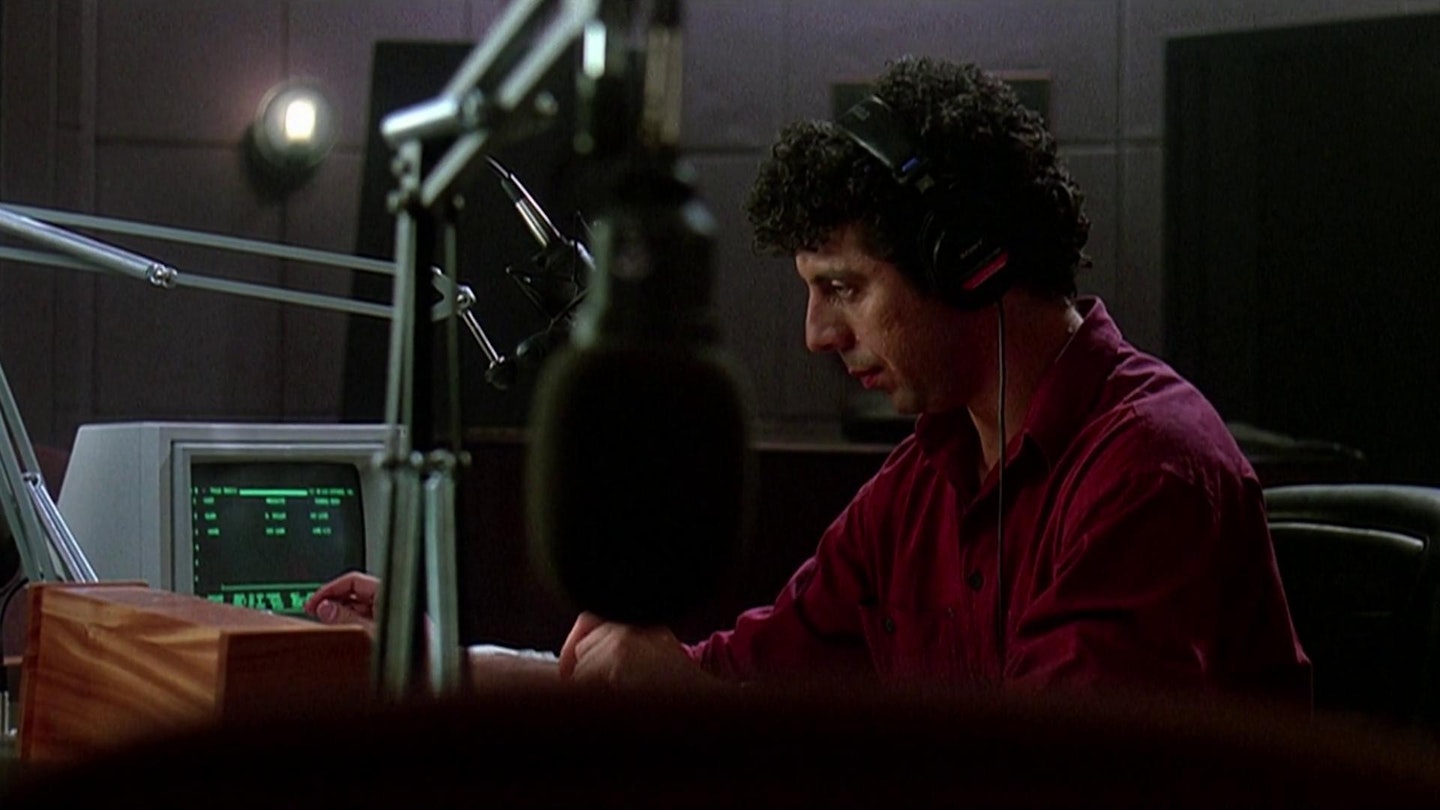Shot in a mere four weeks in the spring of 1988 and sandwiched between two epic consciences at war, Wall Street and Born On The Fourth Of July, Talk Radio proves that Oliver Stone can turn on a sixpence. Based on star and co-writer Eric Bogosian's stage play, the action is largely confined to the underlit studio of KGAB, a fictional Dallas radio station, where "shock DJ" Barry Champlain has perfected the art of insulting his callers. Stone has opened the play out a little bit by using a couple of flashbacks, and by adding an understanding ex-wife (Ellen Greene) for Champlain, but the film remains a claustrophobic affair that limits itself to a single weekend in Champlain's life and whose most powerful moments are Champlain's monologues.
Much of Talk Radio's plot and final resolution have been lifted from the autobiography of Denver talk-show host Alan Berg, yet while Stone's prescient feel for social issues has ensured that it remains confrontational, TV and radio have become only marginally interested in what should and should not be said on the air. While Champlain's lonely callers give voice to the stupid and psychotic underbelly of America, Stone concentrates on the unshaven chin and beady eye of Champlain, a dissenting conscience who has turned his opinions into entertainment and his verbal flair into a means of control.
Like Stone, Champlain prides himself on his rebel voice, and when he is offered national syndication for his show provided he tones down his attacks, he goes out of his way to offend his audience, his boss and his few friends. As the mood of the film darkens, the Jewish Champlain receives death threats from anti-Semitic listeners, yet even these enemies seem welcome as Champlain slowly realises that he is not so much a voice in the wilderness as a mere entertainer to be turned on and off with the flick of a switch.
Talk Radio is a riveting portrait of a complex man who's driven to communicate and yet is unable to love either his listeners or his intimates. Stone fans will liken Champlain to Richard Boyle in Salvador, and may be tempted to interpret its ambivalence towards entertainment in terms of the director's reaction to his adoption by Hollywood as its favourite rebel. Others will discover a fraught chamber piece that takes America's prejudices and Champlain's tortured personality and stares them right in the face.
